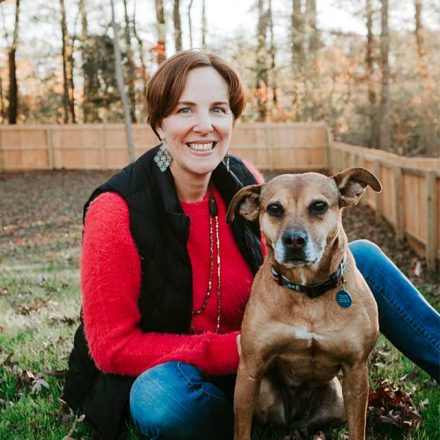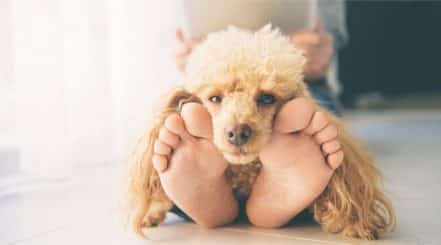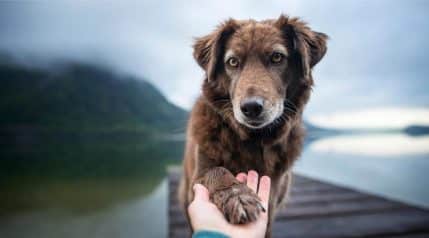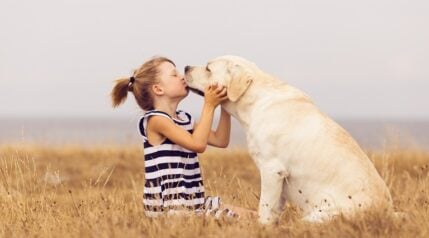Most owners that live in an urban, suburban, or even rural setting will end up taking their dog to the dog park at some point in their pup’s life. Dog park etiquette is something that’s not always discussed, but something that’s more of an unspoken rulebook of how you as a dog owner and your dog need to act around others. If the dog park is going to stay fun for everyone, you’ll want to be aware of canine and human social expectations before you go.
While it’s probably very tempting to just stand back and let your pup run off to play, this is something you shouldn’t do, even if your dog is extremely well behaved. The problem is, even if your dog is an absolute angel, there are other owners that take their dogs who aren’t. These dogs may not be ready to react to your overly social pup, and this is where fights can sometimes ensue.
As a dog owner, it’s your responsibility to look out for your own dog. You can’t control other owners, and you certainly can’t control dogs that don’t know or trust you. By following the tips below, you’ll be sure to have a much more calm and relaxed experience next time you head to the dog park.
Dog Park Rules

While the rules can differ from dog park to dog park, there are some universal rules that you’ll want to stick to if you own a dog and want to take them to the dog park. Many of these laws are already put in place by local municipalities, meaning you can be fined if you don’t follow them. But most of them are just plain common sense. Let’s look at some of the primary rules you’ll need to adhere to in order to maintain proper dog park etiquette.
*Please note, that we are not attorneys, nor legally responsible for you or your dog. If you have questions about your local dog park restrictions, please contact your state or local government. For legal questions, always consult with a licensed attorney.
Dangerous Or Aggressive Dogs
You are not permitted to bring your dog in if your dog is known to be aggressive. If your dog has a history of being aggressive or is more aggressive by nature with people or other dogs, it’s best to avoid the dog park altogether so you can avoid any difficult situations. You will need to check legal requirements in your state, but there may be harsher penalties for you legally if you bring a dog that’s been known to bite into a dog park. The last thing you want is for your dog to bite another dog or human.
Female Dogs In Heat
You aren’t permitted to bring a female dog into the dog park if your female pup is in heat. Female dogs in heat can increase aggression in male dogs. This is especially true for male dogs that are intact and haven’t been neutered. For this reason, female dogs in heat shouldn’t go to the dog park, or it could create a dog reactive situation for the female dog owner, and any other dogs that may have heightened aggression as a result of that owner not complying with this rule.
Removing Your Dog
If your dog becomes aggressive at any time, most Dog Parks will have rules on display telling you it’s your responsibility to remove your dog right away. If your dog has displayed aggression toward humans or other dogs in the past, we would advise you to not go to the dog park until those issues have been remedied. Some people bring their children into the dog park (we don’t recommend this) and if your dog is aggressive, you could likely be held legally responsible if your dog bites a child or an adult. You could also be responsible even if your dog just jumps on someone and happens to knock them down. If your pup hasn’t shown aggression in the past, but does at the park, remove your dog immediately.
Bringing Children
We recommend not bringing any kids into the dog park with you, especially if it’s a busy day. With that being said, people do, and it can be fine under normal circumstances. Make sure to check local laws for off-leash areas, because it’s possible your local guidelines restrict children from entering the dog park grounds. If they allow it and you bring a child in, keep your eyes closely on your child, and do not let them pet strange dogs without their owner’s permission to do so.
Dog Bites
Dog parks can be a place where dog-to-dog bites happen, or dog-to-human bites occur. If this does, most states will require you to report it to animal control or local law enforcement. Make sure you review your local laws to determine the legal course of action you need to take. If you are bitten, or your dog is bitten, report it right away in accordance with those guidelines.
Dog Poop
Clean up after your dog! City and State employees that take care of the dog park grounds are not responsible for cleaning up after your dog. YOU are. Make sure that you clean up dog poop if your pup decides that they need to relieve themselves. Leaving it behind for someone else to clean is not only bad dog park etiquette, it’s punishable by a fine in some municipalities.
Close The Doors
Make sure as you enter and exit the dog park, you close the doors properly. This will prevent off-leash dogs from exiting the dog park. Most states have requirements where there is a two-gate system, which will help ensure that your dog doesn’t run away. With that being said, it’s still advised that you make sure you properly close all doors and gates as you leave the park.
Dog Park Etiquette

Many dog parks don’t have the next section written out as official “rules” but it’s more just good common sense. If you don’t adhere to the common dog park etiquette below, you or your pup could be labeled as an irresponsible dog owner, and could be reported (rightfully or not) to animal control. Understanding the etiquette guidance below will help ensure that it’s less likely to happen.
Multiple Dog Ownership
While many states and municipalities don’t have any legal rules against multiple dog ownership, some areas do require the owner to not allow more than 3 of their own dogs at one time in a park. This is because it becomes difficult for one owner to manage the behavior of multiple dogs, and dogs that are part of the same pack, have already established a pack order.
Visual Contact
You’ll need to keep visual contact with your dog at all times. Most dog owners are fairly good at this, but occasionally some owners will use the time to socialize and not pay attention. This can result in your dog being injured if approaching an aggressive dog, or your dog injuring someone if it’s in a situation it isn’t comfortable with. Never leave your dog unattended.
Treats & Toys
Don’t bring dog treats with you to the dog park! Some dogs are food aggressive. Even if your dog is not, it doesn’t mean that other dogs won’t smell the food or treats and start to food guard. We recommend that you leave the dog treats outside on a bench nearby, or just empty your treat pouch before you ever head into the dog park with your pup. Dog toys are similar. Some dogs can get possessive of their toys, so it’s best just to leave them at home, even if they are indestructible dog toys that can take some abuse.
Pronged Collars
While there’s not any legal guidance against using prong collars, some parks will want these removed. If your dog is playing with another pup and has a pronged collar on, it’s possible that your pup will play too rough, and fall incorrectly on the collar. This could cause harm to your dog, and we recommend that if you use a pronged collar, only use it in a way that the manufacturer recommends, and this means taking it off inside the park.
Dog Digging
If your pup decides to dig some holes, make sure you fill them back in. Not only will the holes create an eyesore, but they could also create a tripping hazard for other dogs or dog owners. Most dogs won’t dig quickly enough to dig an enormous hole, so take a few minutes and replace the dirt your pup dug up before you leave.
Phone Calls & Text Messages
Keep your eyes on your dog and not on your phone! While this goes along with keeping your eyes on your dog and holding visual contact, many people use the dog park as a place to go and just hang out on their phones. Doing this puts your dog at risk, and other dogs at risk if you aren’t fully paying attention. You wouldn’t leave a child unattended in a play facility, so treat your dog the same way and avoid your phone.
Dog Age
Don’t bring dogs younger than 4 months into a dog park. Your vet is the best person to advise you of this, but dogs typically shouldn’t go into environments that have other dogs under 4 months while their immune system develops. They also need to receive all their puppy shots. Once this has happened, it will help ensure that your dog is less likely to pick up an unintended illness, causing you extra vet trips and vet expenses.
Rough Play
If your dog starts to play roughly, pull them out of the park. While rough play is different than aggression, you still don’t have any guarantees that other dogs won’t react aggressively to your dog during rough play. If the dog park is sparsely populated with one or two dogs and rough play ensues, make sure to ask the other owners if it’s safe for the play to continue and monitor them closely.
Doggy Discipline
Don’t discipline the dogs of other owners. You don’t know the attitude and behavior of the other dogs, nor their owners. Sometimes things can get a bit heated when owners clash over the behavior of their dogs, so it’s best to just take your dog and exit if you feel that there’s any reason not to stick around. Rather than discipline someone else’s dog, it is usually better to leash your dog and leave and advise the other owner very politely that they may want to coach their dog on proper etiquette. Focus on training your own dog, and your own dog’s behavior.
Small Or Shy Dogs
If you have a dog that’s small or shy, it can be a challenge to bring them to the park. It’s understandable to want to allow them to have social interaction, especially when they are younger. At the same time, these can also be the pups that react negatively in a bite situation. However, many dog parks actually offer a small or shy dog park gated play area that’s separate from the bigger pups. We’d recommend finding one of these in your area, or it may be worth avoiding the park altogether if you cannot find one.
Keeping Your Dog Safe

Keeping your dog safe really just involves one thing, and that’s being a responsible dog owner. If at any time you see or feel that other dogs are becoming too rough, you’ll want to make sure that you leash your dog and take them away immediately. Your responsibility as a dog owner is to YOUR dog, and nobody else’s. This means protecting them from other dogs, and that could even mean deciding to skip the dog park altogether if you enter and see more aggressive dogs playing around.
If you have a dog that’s an alpha dog and doesn’t like to be pushed around, it may be necessary to just skip the dog park and look for other social interaction options. Unfortunately, you can only control you and your dog, not other owners, so it’s your responsibility to decide if heading to the dog park is even a good idea. Often times the best way to dog safety is through prevention. If your dog has some unknowns, it’s best to not put them in a situation where they could be exposed to things outside their control that make them react.





